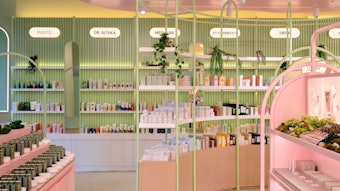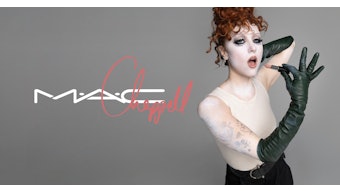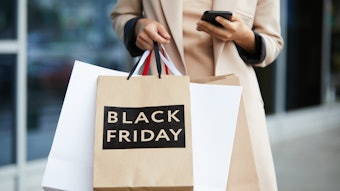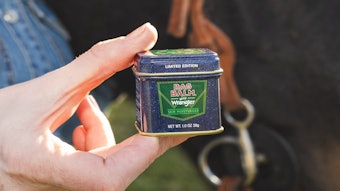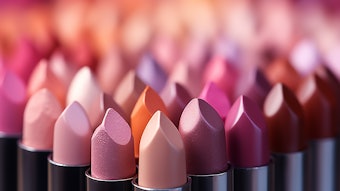Brazil’s economic slowdown hasn’t seemed to discourage makeup brand owners. According to the World Luxury Index Brazil report, consumer interest in beauty brands increased by 49% in 2012, with fragrances and makeup accounting for more than 90% of consumer interest.
The Brazilian makeup market grew 10% between 2010 and 2012 and saw US$2.6 billion in sales last year, according to Euromonitor International. Despite being the world’s third largest makeup market behind the U.S. and Japan, about half of Brazilian women still don’t wear makeup on a regular basis, suggesting the category has plenty of room for growth. Thus, companies are investing heavily in sampling campaigns and consumer education.
The direct sales channel, in fact, accounts for approximately 78% of makeup sales, but it is facing increasing competition from retail chains. Besides Sephora’s Brazilian debut in 2012, the year also saw the launch of two new makeup brands: Quem disse, Berenice?, as part of the Boticário Group, and Le Lis Blanc Beauté, created by fashion retailer Restoque. International brands such as L’Oréal’s Maybelline and MAC have also been fighting for their share of the market—and direct sellers have responded.
According to Renato Abramovich, business unit director at Natura, makeup is a strategic segment for the company and has been growing rapidly. Natura has three makeup lines and recently relaunched Aquarela, its top-selling range, with new packaging and changes in the product mix. “Lip makeup is still the most sought-after category, but face and eye makeup have gained ground, which shows that the market is becoming more sophisticated.”
Avon increased its investment in marketing by 60% in 2013 with the relaunch of the brand’s makeup range, which totals 185 items and includes new shades and products. “Our goal is not only to maintain our leading position but also to win market share,” says Ricardo Patrocínio, marketing director at Avon Brasil.
Magazine Luiza Acquires Época Cosméticos
Ranked as one of the largest retail chains in Brazil, Magazine Luiza announced the acquisition of online beauty retailer Época Cosméticos for R$13.6 million. The deal aims to diversify Magazine Luiza’s operations and strengthen the company’s online sales.
Founded in 1957, Magazine Luiza operates 733 stores throughout the country and eight distribution centers. The launch of its online sales platform, Magazine Você, which combines traditional door-to-door selling and social media, earned the company a 33% increase in sales in 2012, exceeding R$1 billion in gross revenues. Época Cosméticos, which has worked in partnership with Magazine Luiza for the last two years, had a 60% growth in sales in the last two years and sales totaling R$15.9 million in 2012.
L’Oréal Sales Grow 15.8% Q2
L’Oréal’s Brazilian subsidiary recorded the best performance in Latin America, with a 15.8% increase in sales from April to June 2013, compared to the company’s 4.2% worldwide growth. In an official statement, the company claimed to have won market share in all of its four divisions: consumer products, active cosmetics, professional products and luxury products. The fastest growing segments were skin care, makeup and deodorants. Moving into sixth place in the world ranking, L’Oréal Brasil is increasingly operating independently from its global headquarters, as evident with the launch of products target specifically at the Brazilian consumer—notably L’Oréal Professionnel’s hair care range Absolut Control and Drakkar Noir fragrance’s limited edition fragrance signed by Brazilian soccer player Neymar Jr.
“Our autonomy has gradually increased, and all major decisions, such as product launches and advertising campaigns, are currently made directly by the Brazilian subsidiary,” says Didier Tisserand, president, L’Oréal Brasil. “We are aiming at doubling our sales in the next five years and reaching the fourth position among L’Oréal’s top markets."
L’Oréal plans to invest R$200 million in Brazil over the next two years for the expansion of its manufacturing operations, and the opening of a new distribution center and a new research center, both in the state of Rio de Janeiro.
Government to Facilitate Access to Brazilian Biodiversity
The Brazilian government has announced it will make changes to the stopgap measures that currently regulate access to natural resources and legal protection of patents in the biotechnology area. The idea is to improve intellectual property rights and enhance access to genetic heritage and traditional knowledge.
Experts say that the current legal framework for protection against biopiracy, dated from 2001, has raised a number of hurdles that prevent universities and companies from accessing genetic resources for research purposes. Such legal and bureaucratic barriers are estimated to delay the development of new products by at least three years, thus discouraging many companies in maintaining the investment required.
“The government’s new proposal seeks to review legal restrictions [and] simplify registration processes for access to genetic resources, as well as clarify the terms for equitable benefit sharing,” says Adriana Diaféria, vice president at FarmaBrasil Group, which represents the interests of Brazilian pharmaceutical companies to bridge the gap between industry and government.
Natura Announces e-Commerce Project
With a growth of 11.7% in the second quarter of 2013, Natura seeks to facilitate additional growth through the launch of an e-commerce platform in the second half of 2014. The company recorded net revenues of R$240 million April to June 2013, exceeding market expectations.
The so-called Rede Natura (Natura Network) has been introduced as a pilot project in the city of Campinas, São Paulo. “Rede Natura is poised to transform the way we do business, but results will only be assessed on medium- to long-term basis,” says Natura’s president Alessandro Carlucci.
L’Occitane Opens its First Barber Shop in São Paulo
L’Occitane invested in the men’s grooming market with the opening of its first barber shop, located inside the brand’s São Paulo flagship store. Focused on male consumers, the new shop features the best of old-school elegance and exclusive treatments using L’Occitane products. “We have combined traditional shaving techniques with signature facial treatments,” says Laura Barros, brand director at L’Occitane.
Click here for for the news about The Body Shop’s acquisition of Emporio Body Store.
Fernanda Bonifacio is a Brazilian journalist who focuses on the beauty industry, and has been published in the U.S. and Europe. She represented ABIHPEC and its member companies globally from 2002–2008. She has also been a communications consultant for raw material manufacturer Beraca since 2009.
